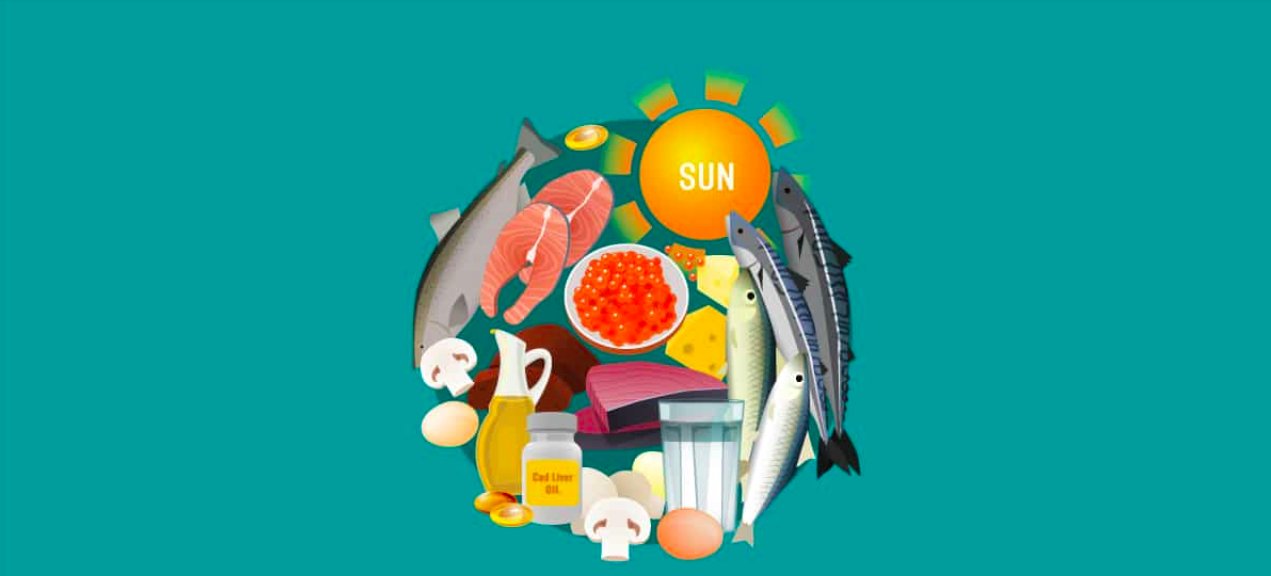In response to the current COVID-19 global pandemic, and the attendant impact on outdoor physical activity and leisure time, the Public Health England reminds individuals of the importance of obtaining the daily recommended dosage of vitamin D.
The scientific evidence clearly supports the benefits of vitamin D.
Recent studies have found that vitamin D supplementation may help improve the outcomes of patients infected with coronavirus.
According to one study:
“The results suggest that an increase in (vitamin D) level in the body could either improve clinical outcomes or mitigate worst (severe to critical) outcomes, while a decrease in (vitamin D) level in the body could worsen clinical outcomes of COVID-2019 patients.”
Source: Alipio, Mark, Vitamin D Supplementation Could Possibly Improve Clinical Outcomes of Patients Infected with Coronavirus-2019 (COVID-2019) (April 9, 2020).
Here are a few more ways vitamin D can benefit you:
- Lowers Hashimoto’s antibodies
- Builds stronger bones
- Can help breast cancer
- Balances blood sugar levels
- Has anti-inflammatory effects
- Reverses oestrogen dominance
- Has antidepressant qualities
- Reverses autoimmunity
- Helps gut bacteria to produce vitamin B5
- Helps with hair loss
- Reverses and prevents anaemia
- Improves sleep
How much vitamin D do you need?
If you go by the ranges found in labs or given by doctors, “healthy blood levels” of vitamin D are from 25 to 80 ng/ml. If you are below 10, you are severely deficient, and if you are below 25, the Endocrine Society and the Vitamin D Council still maintain that you are not getting enough.
Functional medicine’s recommended range for healthy people is 50 to 80 ng/ml, especially so for people with a family or personal health history of cancers, autoimmune conditions, and IBS.
It may take 3 to 4 months to get into this healthy range.
You can easily get a blood test done to confirm it.
Take this test and see how many you are ticking “yes:”
– I rarely go out in the sun
– I put on sunscreen before I leave the house
– My clothes cover most of my body
– I live above 35 degrees latitude in the Northern or Southern Hemisphere (in other words north of Atlanta and LA or south of Sydney-Australia, Santiago-Chile or Buenos Aires-Argentina)
– I do not take a vitamin D supplement
– I do not eat wild, oily fish (salmon, mackerel, herring, sardines) two or three times a week
– I do not eat a lot of mushrooms
– I’m dark skinned
– I’m older than 60
– I’m younger than 20
– I’m overweight and carry significant fat
– When I press firmly on my sternum (breastbone around your heart), it hurts
– When I press firmly on my shins, it hurts
– I feel less energy and muscle strength than I should
– I’m depressed
– I have an autoimmune disorder (like Hashimoto’s, Graves’, Celiac, etc.)
If you checked more than 3 of the above, there is a chance you are vitamin D deficient.
The source of this checklist is from Dr. Michael Holick, the leading expert on vitamin D and author of “The Vitamin D Solution.”
What about the sun?
Vitamin D is created by your skin when exposed to the sun.
So what’s the best way to get vitamin D?
Get outside.
The map and calendar below can help determine which months you can get vitamin D from the sun where you live.
- Find your location; which latitude lines are you within?
- Read across from January to December to see what months you are able to produce vitamin D. Red dots mean good UVB availability, Orange is moderate availability, Yellow is low, and Clear is non-existent.
Also, remember that you need to be out in prime hours, 10 am – 2 pm, or when your shadow is shorter than you.
One of the best sources of vitamin D is through 15-30 minutes of direct sunlight exposure on your skin daily (taking care to avoid sunburn). As a result of the current global pandemic and particularly stay-at-home orders, individuals may be spending less time outdoors, resulting in fewer opportunities to obtain this important nutrient.

How much vitamin D should we supplement?
Vitamin D is very safe when taken at reasonable dosages and is important for musculoskeletal health. Levels are likely to decline as individuals reduce outside activity (and so sun exposure) during the pandemic. Most older and younger adults can safely take 400 IU daily to keep vitamin D levels within the optimal range as recommended by Public Health England (PHE).
You can order Vitamin D supplement via The Natural Dispensary website https://naturaldispensary.co.uk
Use code ANW10 to get 10% off.

References:
Dr Michael Holick http://drholick.com
Endocrine Society Joint guidance on vitamin D in the era of COVID-19 https://www.endocrine.org/news-and-advocacy/news-room/2020/joint-guidance-on-vitamin-d
PHE extends vitamin D supplement advice during lockdown https://www.nutraingredients.com/Article/2020/04/23/Public-Health-England-extends-Vitamin-D-supplement-advice-during-lockdown
Sunshine calendar https://www.grassrootshealth.net/document/sunshine-calendar/
Vitamin D reference range https://emedicine.medscape.com

